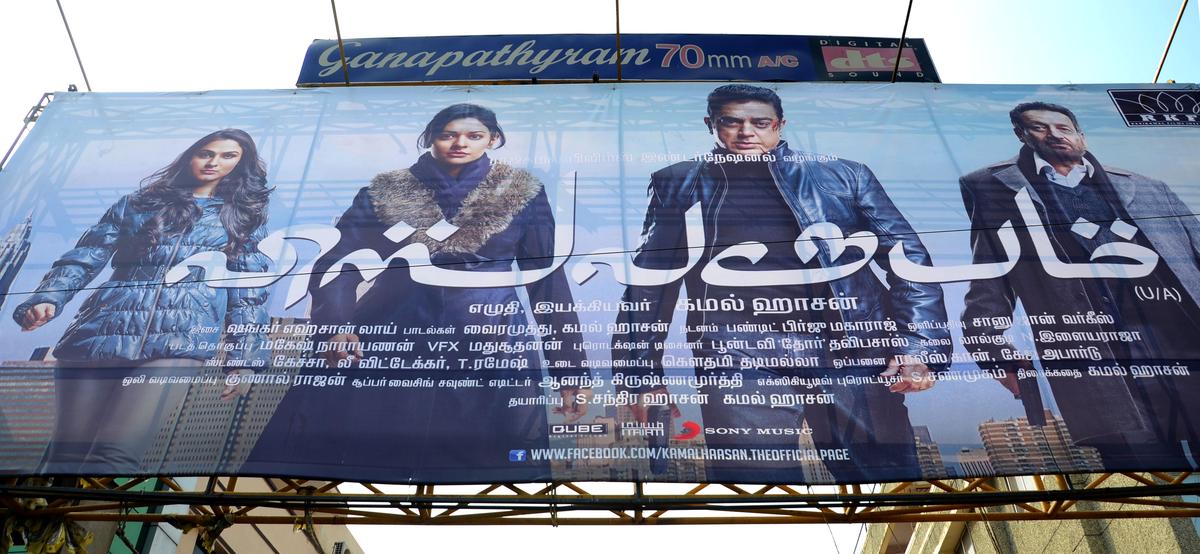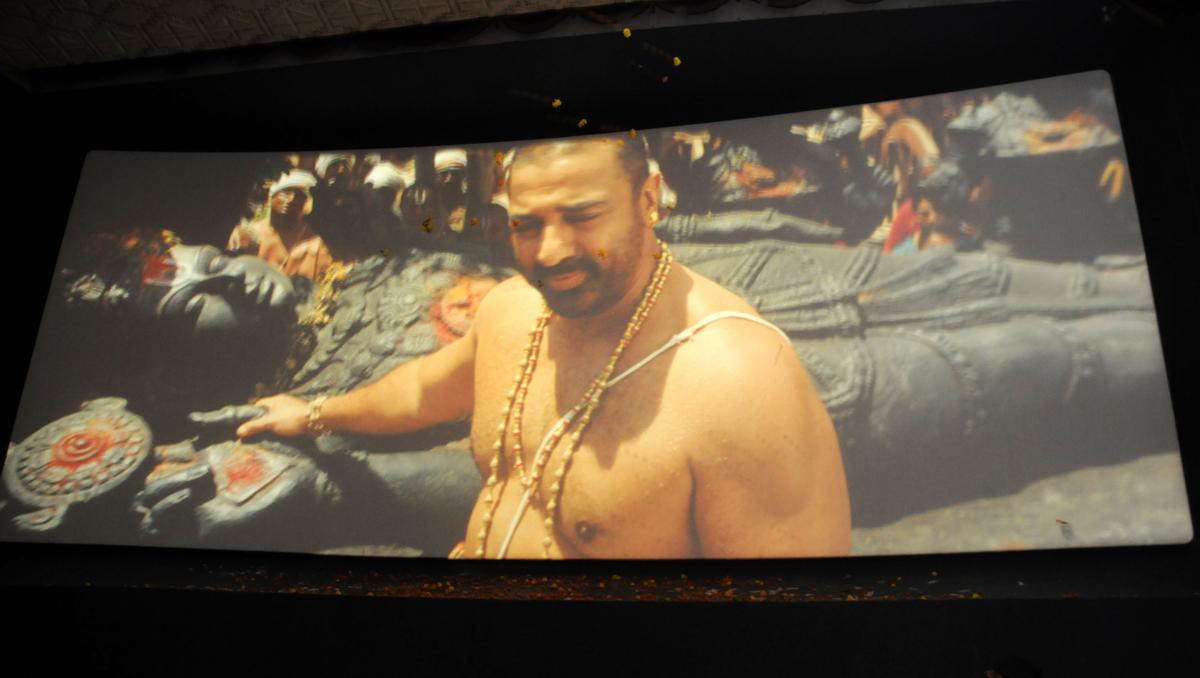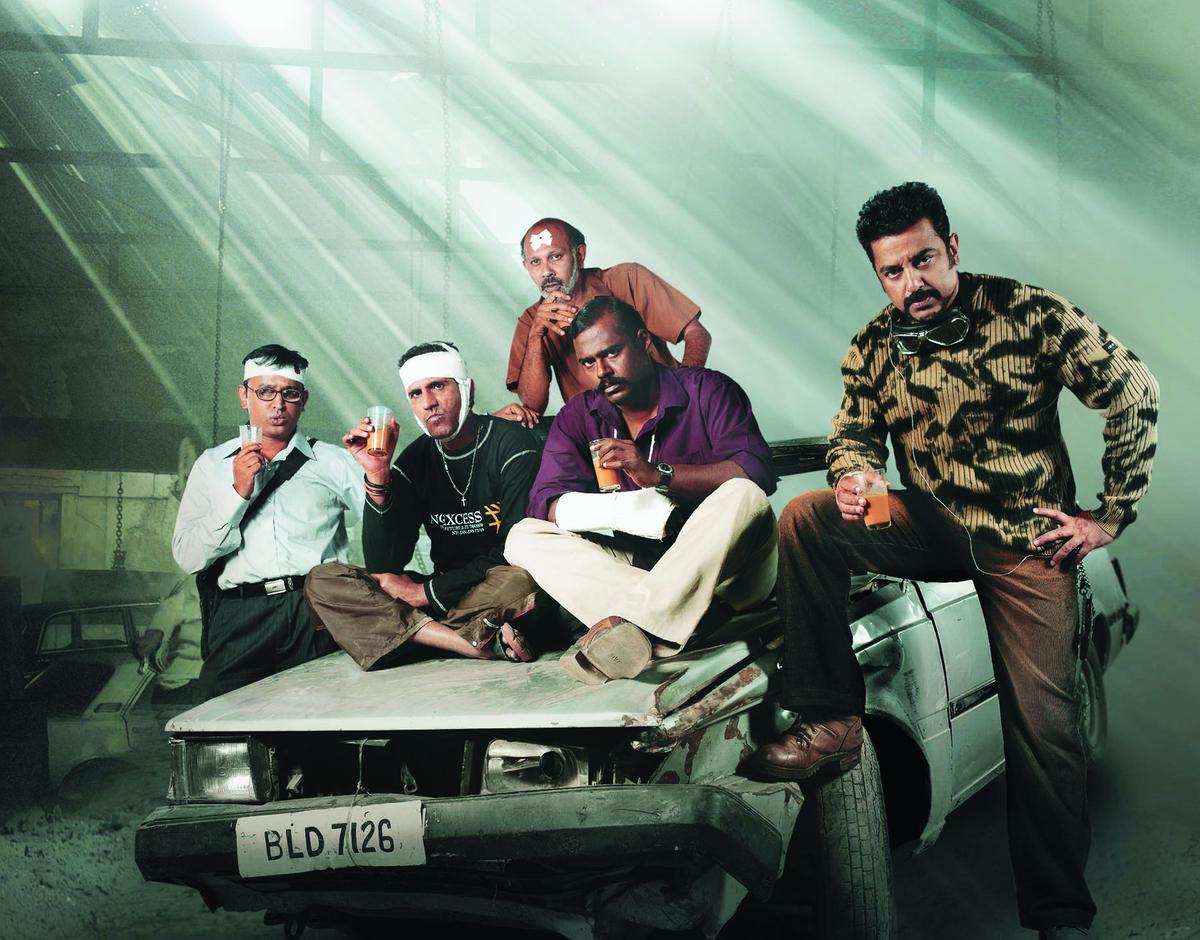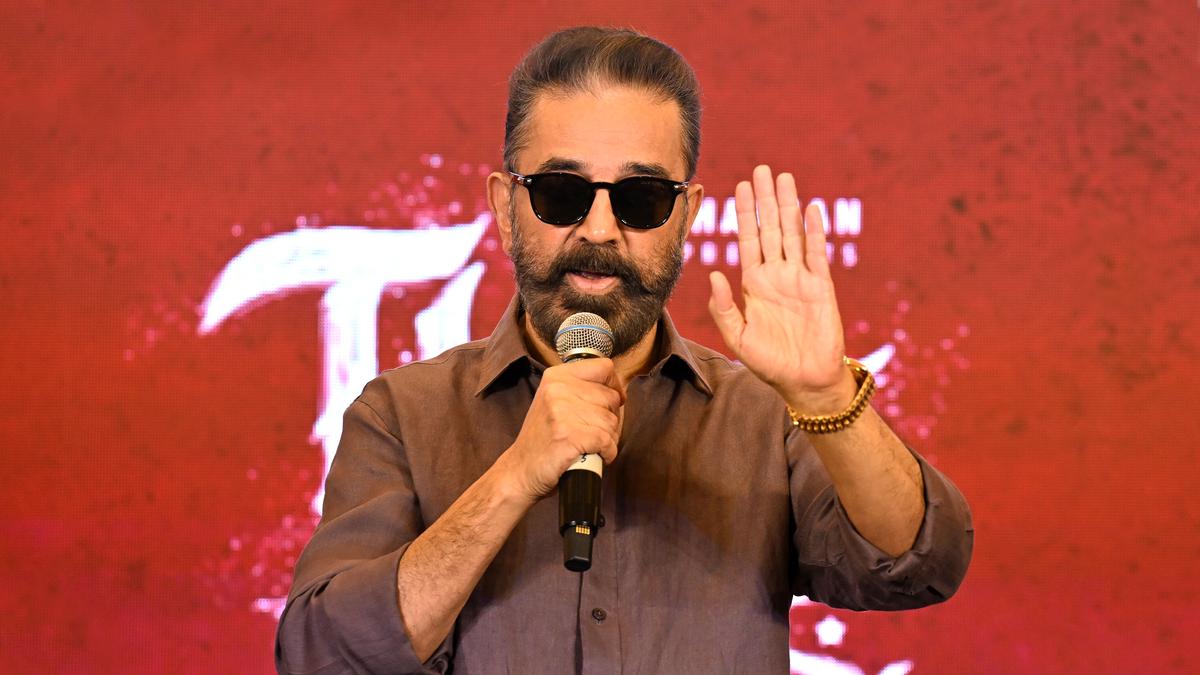Thug Life, starring acclaimed actor Kamal Haasan, has hit the screens — barring Karnataka, where controversy erupted following his comments suggesting that Kannada originated from Tamil. For Mr. Haasan, such rows are not new; his films have frequently faced opposition over the years.
What sets this episode apart is that, unlike past instances where the objections were over the film’s content or title, this time, the controversy has nothing to do with the movie itself.

Here is a look at five of his films that faced trouble in the past over the last two decades:
Vishwaroopam
The first part of this two-part film, produced by Raaj Kamal Film International, ran into trouble even a month before its scheduled Pongal release in 2013. Theatre owners objected to Mr. Haasan’s proposal to release the film simultaneously on Direct-to-Home (DTH) platforms. As a result, the release was pushed beyond Pongal, and the actor-producer dropped the DTH release plan to resolve the conflict.
However, just ahead of its theatrical release, a more serious controversy erupted. Several Muslim outfits launched major protests, accusing the actor of demonising their community and hurting religious sentiments. The Federation of Tamil Nadu Muslims Social and Political Organisation and the Tamil Nadu Thowheed Jamaath were at the forefront.

A poster of Vishwaroopam at Ganapathiram Theatre on L.B. Road, Adyar, on the first day of the release of the movie.
| Photo Credit:
M. Karunakaran
The night before the film’s scheduled release, the Tamil Nadu government banned its screening for two weeks, citing a “law and order” threat.
An angry and upset Mr. Haasan, who was in the United States at the time, termed the opposition “cultural terrorism.”
“I have been ruthlessly used as a vehicle by small groups who seek political profile. Icon-bashing is a great way to be noticed when you are not one yourself. It is happening again and again. Any neutral and patriotic Muslim will surely feel pride on seeing my film. It was designed for that purpose,” he said.
Tamil Nadu Thowheed Jamaath members gather at the Tirunelveli District Collectorate on January 31, 2013, to submit a petition to the District Collector, seeking a permanant ban on the release of Vishwaroopam
| Photo Credit:
A. Shaikmohideen
Raaj Kamal Films International challenged the ban in the Madras High Court. Justice K. Venkataraman, in a late-night interim order, stayed the government’s decision. But Mr. Haasan’s relief was short-lived — the State government challenged the ruling the very next morning. The First Bench, comprising Acting Chief Justice Elipe Dharma Rao and Justice Aruna Jagadeesan, restored the ban through an interim order.
Then Chief Minister Jayalalithaa defended the ban, stating it was solely due to law and order concerns and not out of sympathy with the Muslim organisations. She later said: “The government of Tamil Nadu will do everything possible to facilitate such an agreement. There is no question of curbing freedom of speech.”

The producers and the protesting groups agreed to negotiations, requesting the government to oversee them. The film industry rallied around Mr. Haasan, who had, in frustration, declared he would go on self-exile.
Eventually, a breakthrough was achieved. The Advocate General informed the High Court that the ban under Section 144 of the CrPC had been lifted based on agreements reached in a tripartite meeting between Mr. Haasan and the protestors, convened by the government. The film finally released in Tamil Nadu on February 7, 2013 — nearly a month after its original release date.
Dasavatharam
This 2008 film, where Mr. Haasan played 10 roles — surpassing the record of nine set by the legendary Sivaji Ganesan in his 100th film Navarathri (1964) — faced opposition from a section of Vaishnavites.
The International Sri Vaishnava Dharma Samrakshanaa Society filed a petition in the Madras High Court, seeking removal of certain “offending scenes.” Separately, the Kalyana Suba Samithi petitioned to block the film’s screening.

A still from Dasavatharam, at Albert Theatre in Chennai on June 13, 2008.
| Photo Credit:
R. Ragu
The Society argued that scenes depicting clashes between Saivaites and Vaishnavites distorted history and offended Hindus. “It is contrary to past events recorded and registered in history. It wounds the feelings [of] every sect of Hindus,” it stated.
The Samithi alleged that the film mocked Hinduism, particularly through scenes involving the revered Ramanujachariar. “The movie shows tying of the Great Ramanujachariar with the deity for being thrown into the sea… By showing this scene, a hatred and conflict between Saivaites and Vaishnavites is sought to be created,” it claimed. “The movie also shows that the great Ramanujachariar has killed several Saivities, which is not a fact.”
However, Justices K. Venkataraman and M. Sathyanarayanan dismissed the plea, ruling: “Freedom of expression guaranteed under Article 19(1) of the Constitution of India cannot be curtailed on mere assumption… that the said film contains certain scenes which will hurt the sentiments of the Hindus, more so the Vaishnavites.”
Mumbai Xpress (also ‘Mumbai Express’)
This 2005 black comedy, directed by veteran filmmaker Singeetam Srinivasa Rao — one of Mr. Haasan’s favourites — faced flak for its English title.
Earlier, in August 2004, the Pattali Makkal Katchi (PMK) and Dalit Panthers of India (now Viduthalai Chiruthaigal Katchi) had joined forces under the Tamil Paadhukaapu Iyakkam (Tamil Protection Movement), demanding an end to English titles in Tamil films.
Mumbai Xpress became one of their first targets. Mr. Haasan initially dismissed the concerns, remarking: “There is a train called Tirunelveli Express. Will these groups object to its name too?”

Kamal Haasan in Mumbai Express.
| Photo Credit:
Special Arrangement
He said, “I do not foresee any problems. I know all Tamil-loving people, including Mr. Thirumavalavan (VCK chief). I have also read his writings. They are all my good friends”
But trouble soon followed. DPI cadres staged protests at several locations. In Chidambaram, miscreants vandalised the Lena Theatre screen. Police had to provide protection to theatres screening the film.
Still, Mr. Haasan stood firm: “I cannot change the title as it is relevant to the story. The name makes no difference to me. It is the content that is important.”
Jayalalithaa, then Chief Minister, also took a firm stance, saying her government would not allow any violence against the film industry. Over time, the protests fizzled out, and such campaigns against English titles faded from public discourse.
Vasool Raja MBBS
This Tamil remake of Munna Bhai MBBS came under fire from a section of doctors, who felt it portrayed medical professionals in poor light.
The Tamil Nadu Medical Council filed a petition in the Madras High Court seeking to block the Central Board of Film Certification (CBFC) from issuing a certificate to the film. They contended that the film’s title insulted doctors.
Kamal Haasan and Sneha in Vasool Raja MBBS
| Photo Credit:
Special Arrangement
“The words ‘Vasool Raja’ in Tamil are not a name, but it only means ‘a man, who heeds collection of money by hook or crook, and, who is greedy of money and whose intention is only to earn money by unlawful means’. The film is offensive and hurting the entire community of medical practitioners, who have obtained MBBS degree. It is also likely to cause an unbearable harm to the students, who are undergoing MBBS course. The title is damaging in nature and it degrades the degree awarded by [Tamil Nadu] Dr. MGR Medical University,” the petition contended.
Justice A.K. Rajan, however, declined to entertain the petitioner’s plea. The judge said, the contention of the petitioner that the title is per se defamatory is not acceptable. “The title does not suggest that the entire profession of Medical Practitioners as collection agents. The words ‘Vasool Raja, M.B.B.S.’ is in singular. It may at the most mean an individual. The petitioner has no objection to add the suffix ‘Vasool Raja’ to an individual like ‘Kamalhasan, M.B.B.S.’ Therefore, it is not possible to hold that the title of the film is per se defamatory,” he ruled.
Sandiyar
Production of this film began in 2003 but was soon disrupted after Puthiya Tamilagam leader K. Krishnasamy objected to the title, alleging it promoted caste violence.
Then Chief Minister Jayalalithaa refused to intervene, stating: “Protracted police protection cannot be given to a film unit which deliberately chooses a controversial subject.”
Following a meeting with her, Mr. Haasan agreed to change the title. The film was eventually released in 2004 under the new name Virumaandi, ending the controversy.
Published – June 05, 2025 01:21 pm IST



